Our Sustainability Strategy
Expedition Log: Act 9
At ISCA, the key pillars of our sustainability strategy are based on the three Cs:
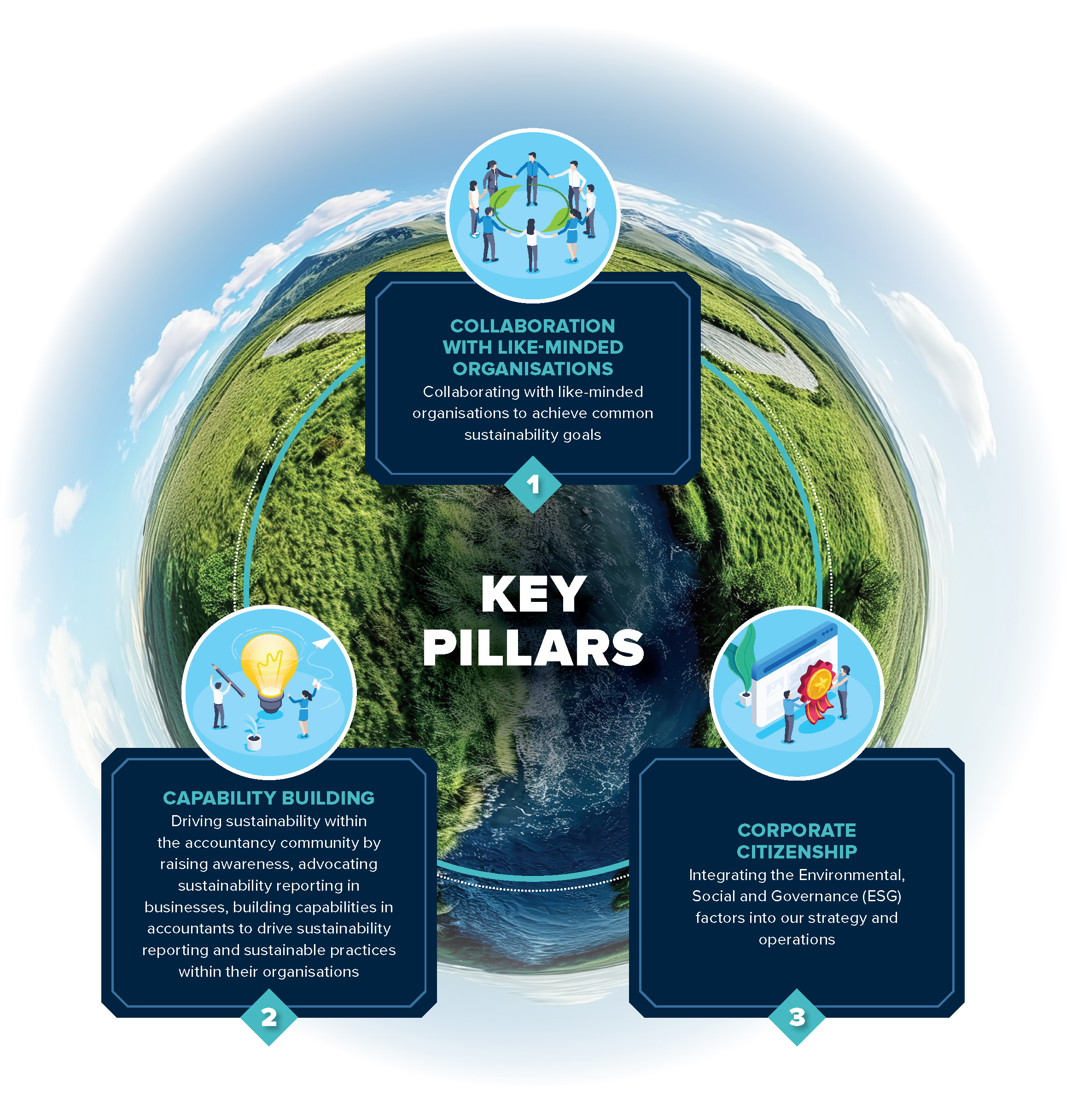

We collaborate with like-minded organisations to expand the accountancy profession’s contribution to sustainability. These stakeholders include relevant government agencies, academia, professional services firms, international accountancy networks, fellow professional bodies and other trade associations and chambers.

Through our involvement in international accountancy networks such as IFAC and the Jeju Group, we participated in meetings and webinars to promote sustainability reporting.
Collaboration with IFAC and Jeju Group
ISCA Hong Kong Chapter Chair Mr Ee Sin Tan represented ISCA as a panelist at the first IFAC Sustainability Summit – Asia Pacific. Attendees gained insights into the first two standards of the International Sustainability Standards Board (ISSB) and the proposed ISSA 5000 by the International Auditing and Assurance Standards Board (IAASB). (See Act 1: Participation in International Alliances and Groupings)
The Jeju Group, which comprises ISCA, the Japanese Institute of Certified Public Accountants (JICPA) and the Korean Institute of Certified Public Accountants (KICPA), held its first in-person 2023 Annual General Meeting to discuss future strategies, current trends and focus areas of the accountancy profession and the Group. (See Act 1: Participation in International Alliances and Groupings)
ISCA organised a roundtable, supported by IFAC and ISSB, to provide updates on the sustainability landscape and standards. Participants shared efforts in sustainability disclosure, assurance, and capability building in their jurisdictions.
ISCA also participated in the Leadership for a Sustainable Tomorrow webinar with more than 150 participants, to promote women leadership.
Collaboration with ACRA and MAS
Ms Fang Eu-Lin, Chairperson of ISCA’s Sustainability and Climate Change Committee (SCCC), represented ISCA on the Sustainability Reporting Advisory Committee (SRAC), an industry-led committee set up by ACRA and SGX RegCo to advise on the roadmap for advancing sustainability reporting by companies in Singapore. In July 2023, ACRA and SGX RegCo launched a public consultation on climate-related disclosure recommendations.
ISCA and the SRAC jointly organised a focus group discussion with preparers of sustainability reports and assurance practitioners to discuss the public consultation on the recommendations by SRAC. ISCA also solicited feedback from the members of the Auditing and Assurance Standards Committee (AASC) and from a focus group discussion with the members of SCCC and its Sustainability Reporting Quality Sub-Committee.
Collaboration with Our MOU Partners
MOU with the Ministry of Culture, Community and Youth (MCCY) - Office of the Commissioner of Charities (COC) and the National Council of Social Service (NCSS)
A new programme was launched to support charities on the implementation of accounting software for better accountability and governance and to help charities review and improve their processes and controls to foster better risk management. (See Act 3: Collaboration with MOU and Industry Partners)
MOU with MCCY - SG Cares Office and MCCY – Office of the COC
Our existing MOUs help to promote skills-based volunteerism within the profession. Our partnerships with these offices enable us to harness the knowledge, skills and expertise of the accountancy profession for community development.

To build capabilities and bolster the competitiveness of accountancy professionals in the sustainability arena, the following table lists our desired outcomes, goals and measures.
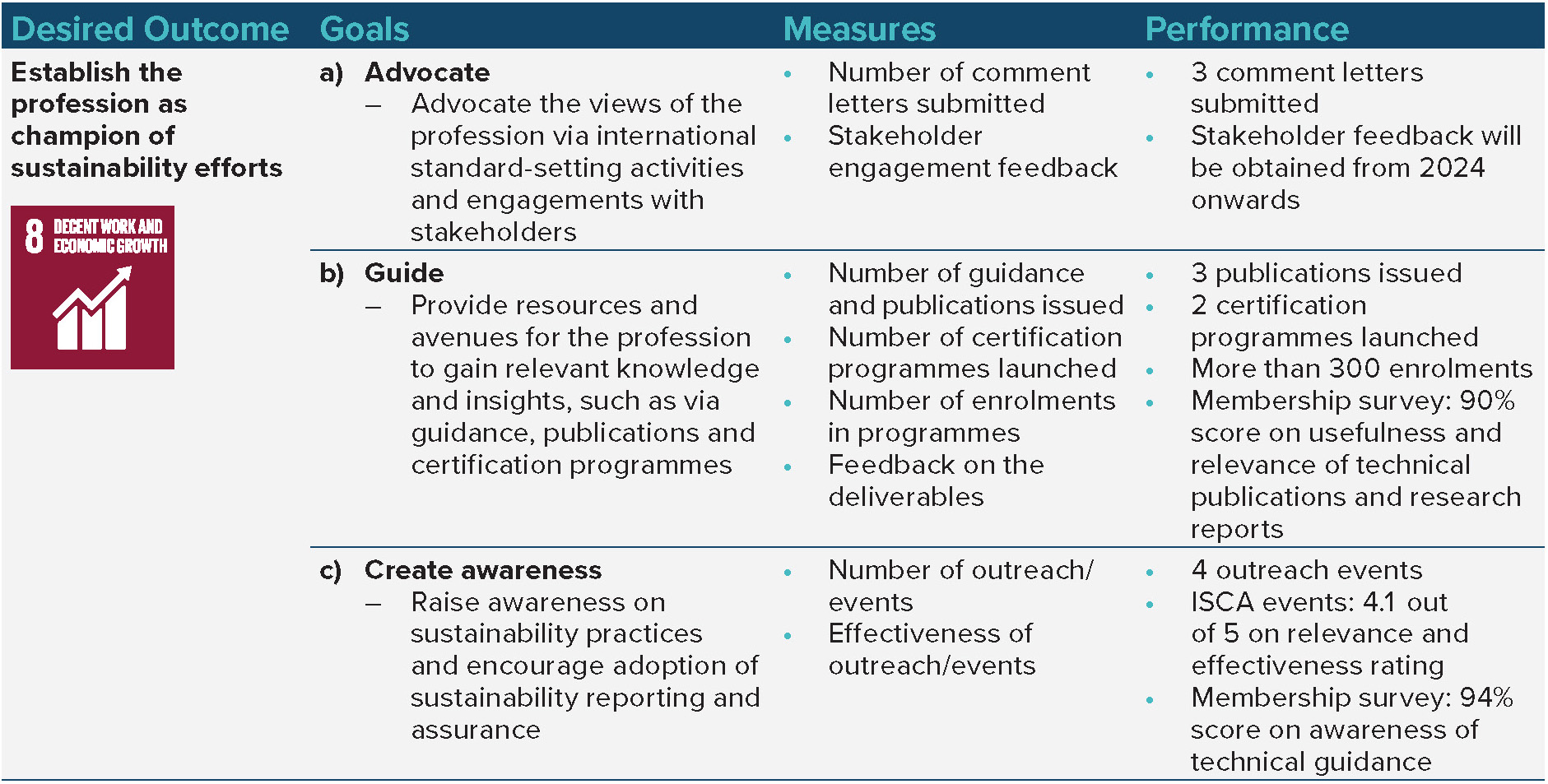
Advocate the Views of the Profession
In 2023, ISCA hosted the Singapore leg of the International Ethics Standards Board for Accountants (IESBA) Sustainability Roundtable. This has enabled the IESBA to gather rich and diverse inputs from stakeholders in Singapore and the wider region on the strategic issues it addresses in its Sustainability and Use of Experts projects. 43 participants across 5 countries attended the session.
ISCA welcomed the development of IAASB’s new sustainability assurance standard, which serves to enhance confidence and trust in sustainability reporting. ISCA submitted comments on IAASB’s Exposure Draft: Proposed ISSA 5000 General Requirements for Sustainability Assurance Engagements and Proposed Conforming and Consequential Amendments to Other IAASB Standards. ISCA also submitted comment letters on:
- ISSB’s Request for Information Consultation on Agenda Priorities;
- ISSA 5000 General Requirements for Sustainability Assurance Engagements submitted to IAASB;
- Recommendations of SRAC
Provide Guidance and Resources
In support of Singapore’s transition to a green economy, ISCA issued two publications to guide businesses on their sustainability journey:
- Volume Two of ISCA Climate Disclosure Guide – First Steps in Conducting Climate-Related Scenario Analysis
- Green & Sustainable Finance: Guide for SMEs
* More information can be found in Act 6: “Upholding Technical Excellence”.
ISCA issued a joint research study report and identified 10 sustainability skillsets for sustainability transformation for the manufacturing sector:
- Sustainability Transformation: The Role of Accountancy and Finance Professionals in the Singapore Manufacturing Sector
* More information can be found in Act 5: “Equipping the Profession”.
ISCA also launched two new certification programmes in sustainability – ISCA Sustainability Reporting for Preparers and ISCA Sustainability Assurance for Assurance Providers. More than 300 sign-ups were received for the certification programmes during the first two months after they were launched.
Create Awareness on Sustainability
To raise awareness and share best practices in climate reporting/sustainability reporting/green finance, ISCA organised the following outreach events and published e-learning courses/article relating to sustainability:
- ISCA Mini Conference Series: Turning Climate Ambition into Action in Singapore - Recommendations to Advance Climate Reporting by the SRAC
- ISCA Mini Conference Series: Environmental Credits and related Accounting Implications
- Fireside Chat on Ethics Standard on Sustainability Assurance and Reporting
- IESBA Sustainability Roundtable
- ISCAccountify Module – Overview of IFRS S1 & IFRS S2
- “At the Inflection Point of Sustainability Reporting” article published in ISCA Journal (August 2023) and republished by Chartered Accountants Worldwide

As a responsible corporate citizen, ISCA undertakes several initiatives aimed at promoting sustainability, community development, and employee well-being.
Chaired by the ISCA CEO and driven by HODs from various departments, the Sustainability Reporting (SR) Taskforce develops and implements SR initiatives, including reporting and disclosures related to sustainability. The ISCA Sustainability Plan, which was developed in 2022, reflects our commitment to support the Singapore Green Plan 2030 and the UN Sustainable Development Goals.
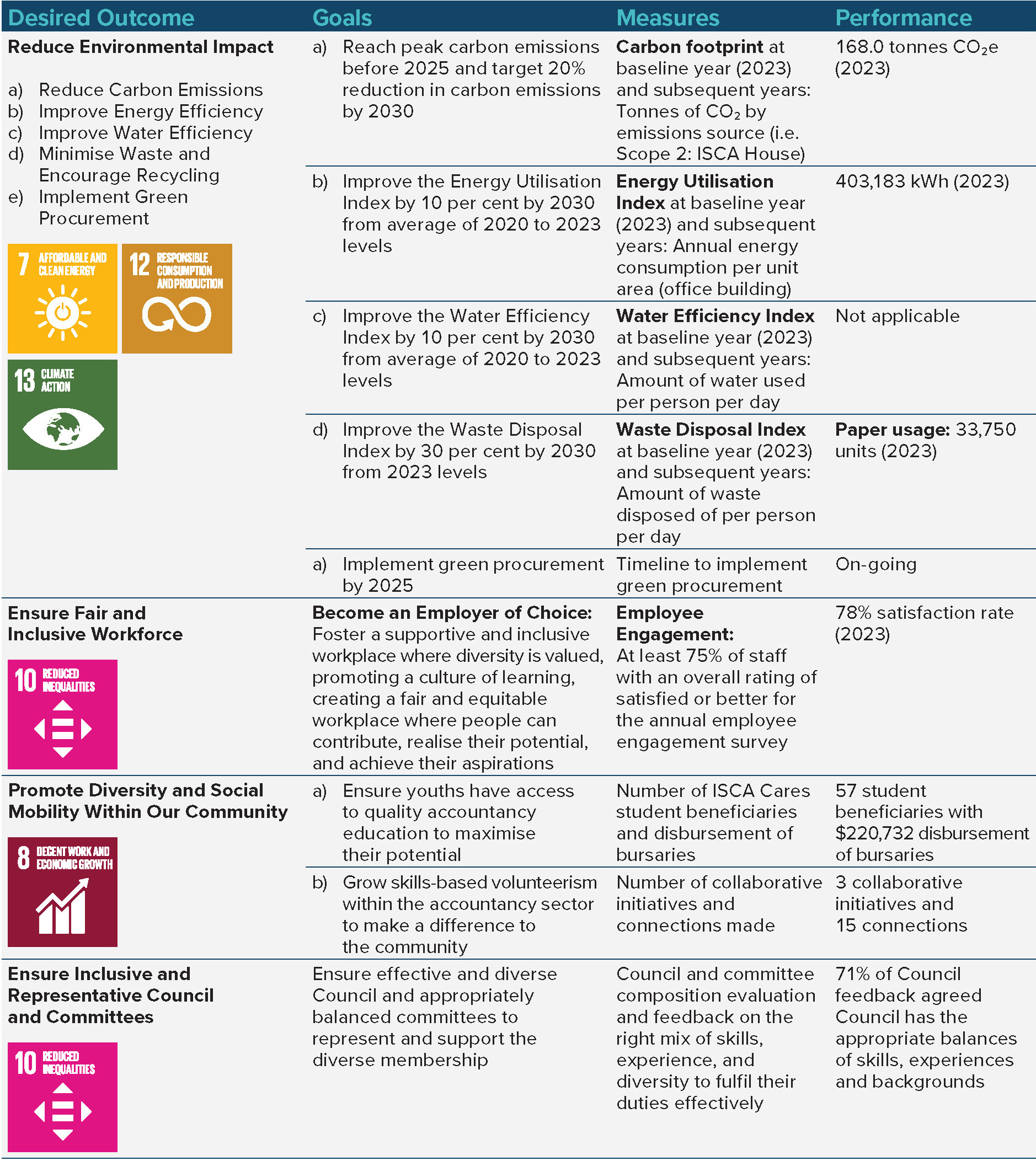
a) Energy Consumption and Carbon Emissions at ISCA House
Our office space at ISCA House uses an open office concept with flexible and reconfigurable layouts for maximum space usage. We adopted hot desking with agile working facilities and multi-functional
spaces which can be converted to breakout areas for small meetings. Air-conditioners are centrally set to 25˚C for energy efficiency on all levels, and will automatically shut off at 6pm. We use sustainable and environmentally-friendly products such as
carpets, partition walls and tabletops with the Singapore green label, and vinyl flooring with the Singapore Green Building product certificate, issued by the Singapore Green Building Council.
To obtain an estimate of our carbon emissions for
2023, we utilised the Environmental Management Authority’s (EMA) Global Emission Factor (GEF) of 0.4168 CO2/kWh and multiplied this factor by our energy usage of 403,183 kWh. However, our measurement data does not currently include CH4/N2O
emissions. There are no Scope 1 emissions as ISCA does not have direct emissions from fuel combustion of any corporate vehicles and machinery. We report Scope 2 emissions as we have indirect emissions from the generation of purchased electricity at ISCA
House. Scope 3 emissions that occur in our value chain such as business travel, employee commute and waste disposal were not monitored.
b) Water Use
Our office is situated within a commercial real estate building where water consumption by tenants is not traceable. To promote water conservation, water-efficient fittings have been installed on new basin taps, and staff are encouraged to used water responsibly. While we currently lack precise tracking methods, we acknowledge the significance of implementing strategies to enhance our understanding and management of water usage going forward.
c) Waste Management
We have been monitoring paper usage and have minimised printing of course materials. Our paper purchases decreased from 100 reams in 2022 to 68 reams in 2023. Currently, waste disposal is not tracked. We are committed to finding ways to further reduce paper consumption and waste, aligning with our sustainability objectives.
ISCA is committed to cultivating a supportive and inclusive workplace culture where diversity is valued. We prioritise continuous learning and strive to create a fair and equitable environment where individuals can contribute, realise their potential, and pursue their aspirations. We offer staff opportunities for growth and encourage them to take ownership of their training, aligning it with their career development plans.
The total number of full-time employees as at 31 December 2023 is 101 (as at 31 December 2022: 97).
The age and gender diversity of our full-time employees are set out below:
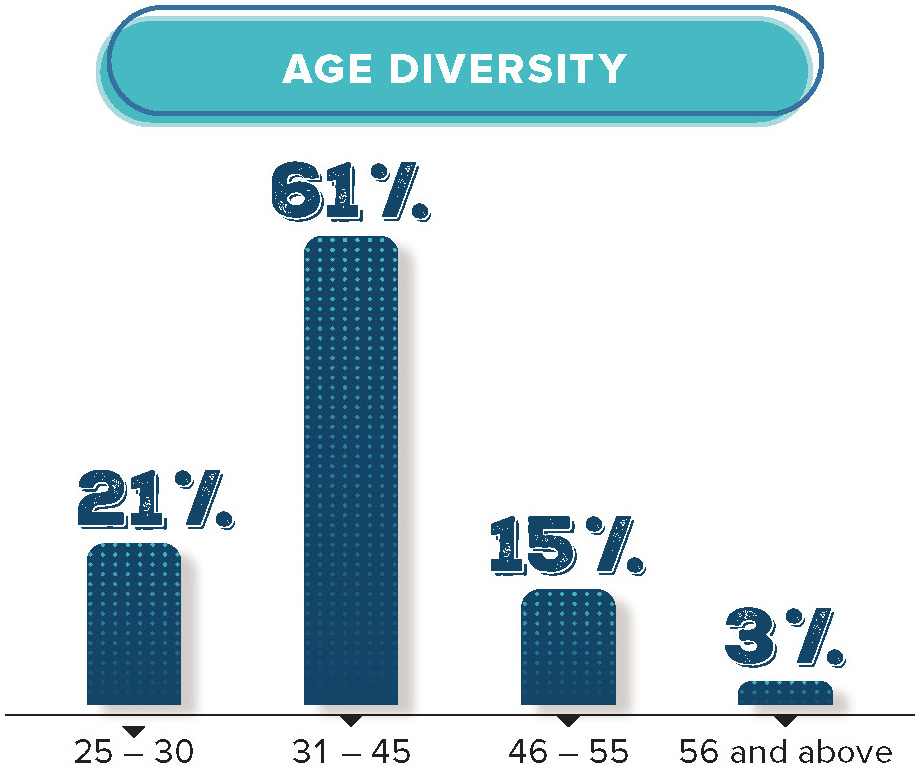
The diverse range of ages among our talent pool enriches our Institute by bringing a variety of experiences, expertise and skills. This diversity demonstrates our commitment to cultivating a robust talent pipeline that supports our growth initiatives.
Female employees account for more than 70% of the Institute’s workforce.
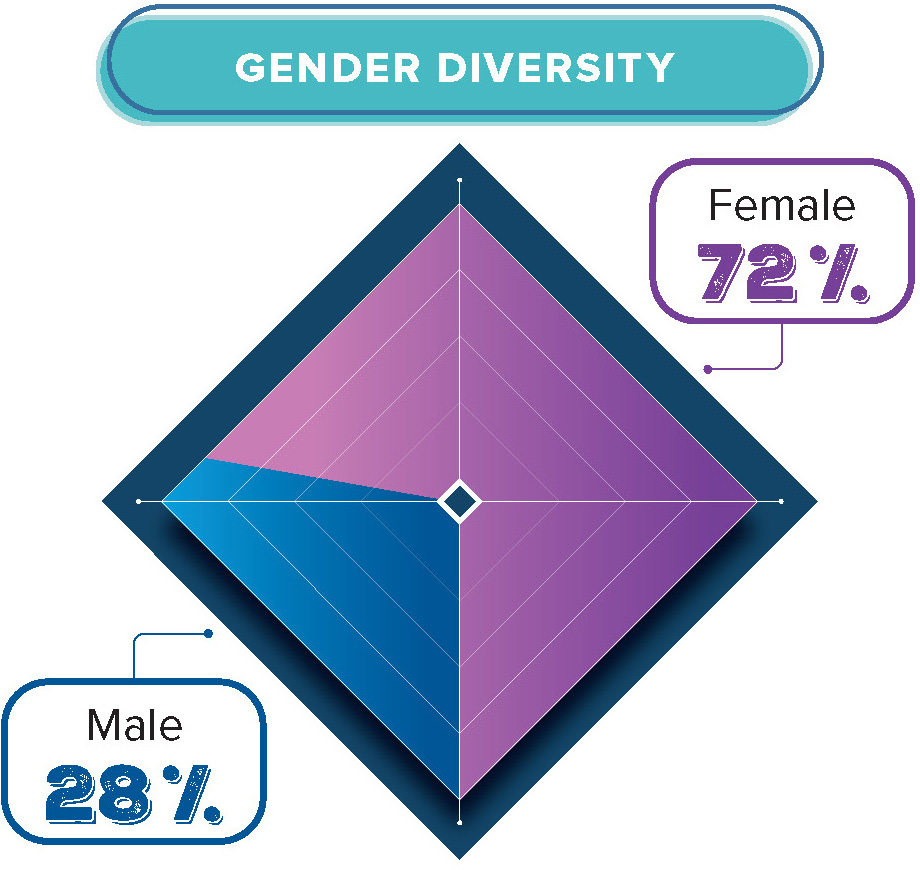
Employee Engagement
In 2023, our employee engagement initiatives soared to new heights with vibrant celebrations. From ushering in the Chinese New Year with festive cheer to commemorating our 60th anniversary, the dynamic mix of events included a much-anticipated Dinner and Dance after a 3-year hiatus, fostering camaraderie. We wrapped up the year with a heartwarming Christmas Lunch, strengthening bonds and creating lasting memories among our dedicated team.

People Initiatives
We believe that a happy and engaged team is vital to our success as an Institute, and continuously gather feedback from our staff for ideas on activities that can help foster camaraderie, creativity, and a sense of belonging at ISCA.
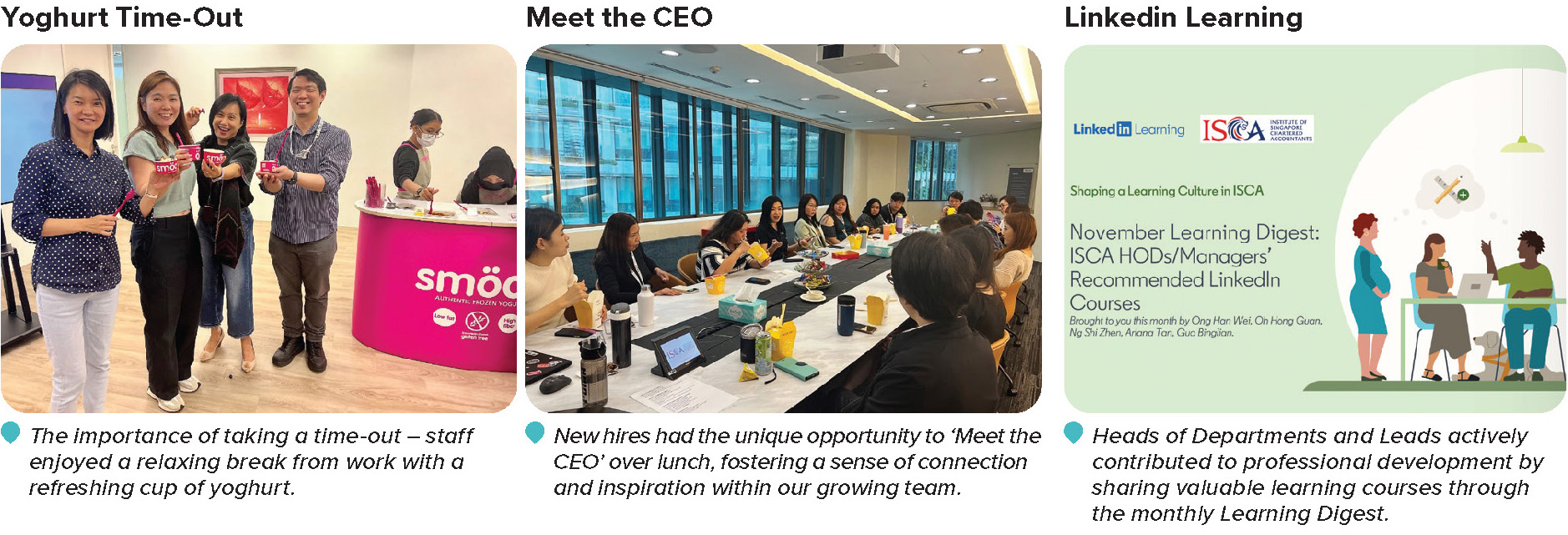
Succession Planning
ISCA recognises the importance of succession planning in minimising potential disruptions to workplace processes. By building a robust talent pipeline and preparing our employees to fill vacant positions, we ensure business continuity. As a forward-looking organisation, ISCA is focused on growth and is responsive to talent scarcity and demographic changes. Additionally, we prioritise the retention of key talent by providing opportunities to challenge and develop oneself. Our decisions regarding succession planning and career advancement, including promotions, transfers, and other assignments, are based on organisational needs, merit and competency.
Empowering future accountants
ISCA’s charity arm, ISCA Cares, represents the collective effort of our profession to give back to society and serves as the platform for our profession to support worthy and meaningful causes.
Established in 2015, ISCA Cares has awarded close to $1 million to over 300 financially challenged youths as they pursue their studies in accountancy, under the ISCA Cares Education Programme. Experienced accounting and finance professionals also mentor our young beneficiaries, known as ISCA Cares Ambassadors. This serves as a conduit for ISCA Cares Ambassadors to glean valuable insights and draw inspiration from esteemed role models within the industry to better shape their personal and professional goals.
Through the programme, ISCA Cares hopes to empower these youths to maximise their potential and help them kickstart their journey to be successful Chartered Accountants.
At the annual ISCA Cares Bursary Awards Ceremony held at ISCA House in November, distinguished guests from the accountancy sector, supporters and donors witnessed the newly-minted ISCA Cares Ambassadors receiving their well-deserved recognition. Over $220,000 of bursaries were awarded, the highest amount since the charity’s inception.
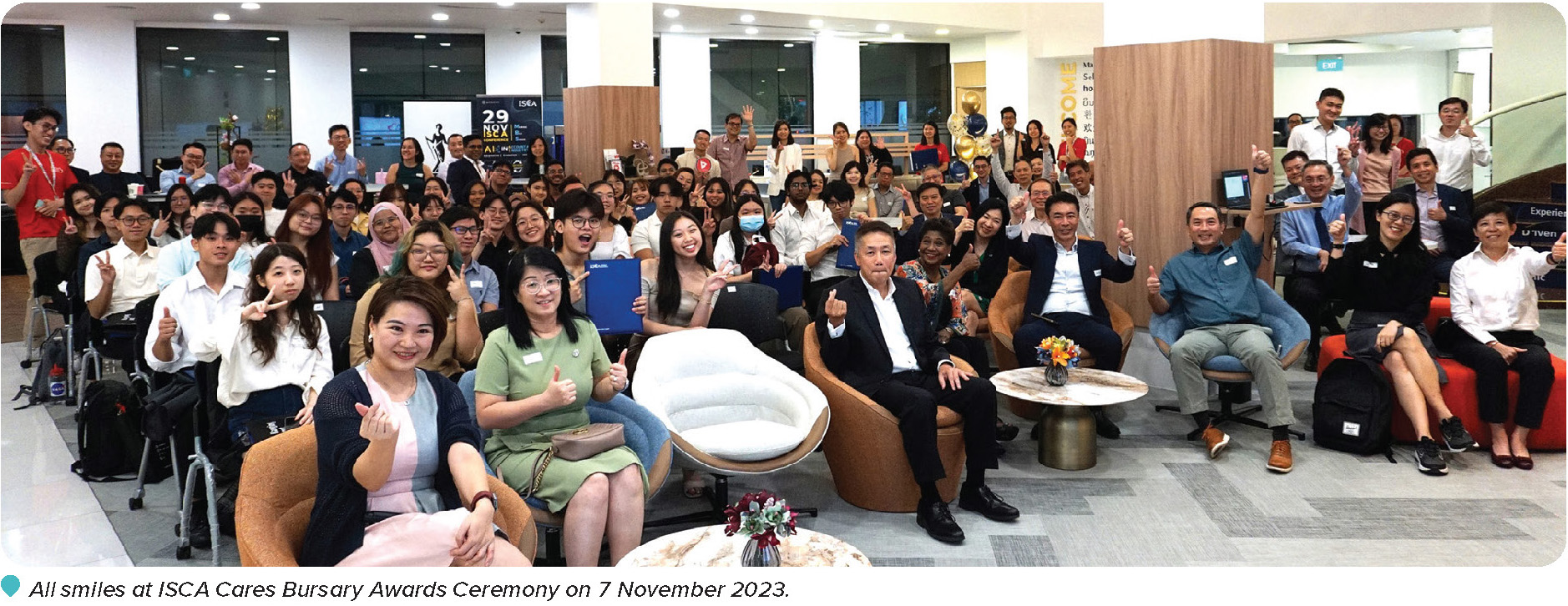
Contributing to the community with skills-based volunteerism
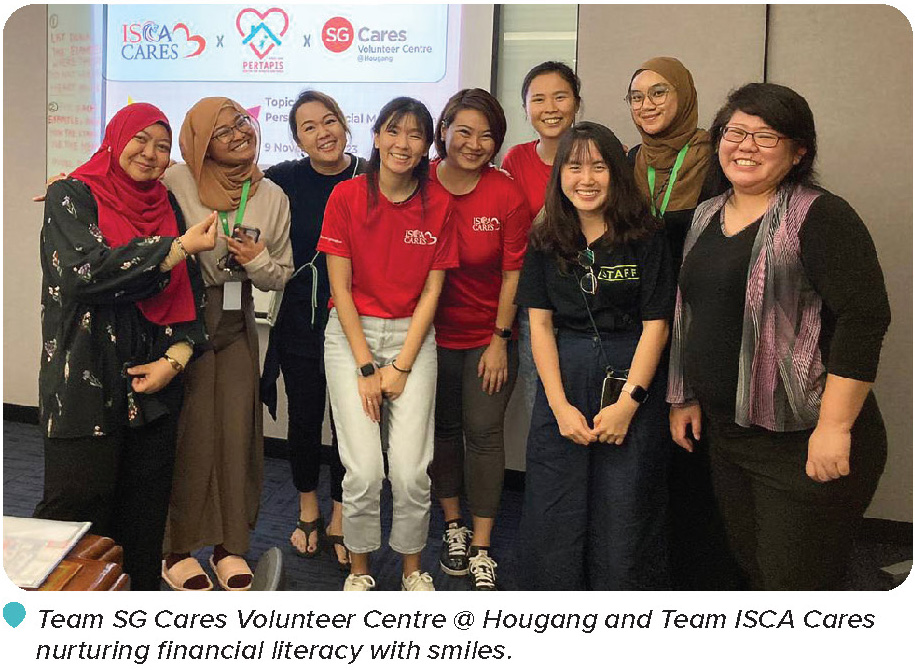
In addition, ISCA and ISCA Cares promote volunteerism within the accountancy profession, by matching charities and non-profit organisations in need of skill-based volunteers with ISCA members who are keen to offer their time and expertise.
In collaboration with SG Cares Volunteer Centre @ Hougang, Ms. Catherine Chong, ISCA member volunteer and Finance Controller at Ya Kun International Pte Ltd, shared her expertise in personal financial management, shedding light on protection against scams. She also conducted a practical budgeting exercise during a financial literacy talk for the young girls at Pertapis Centre for Women and Girls (PCWG) on 9 November 2023.
On 4 December 2023, ISCA Cares teamed up with Nee Soon South Youth Network (NSSYN), and Ties of Love, a student-led ground-up initiative, to organise a visit to Baker Tilly Singapore in hopes to broaden the horizons of children beneficiaries and inspire them about the potential of a career in accountancy.
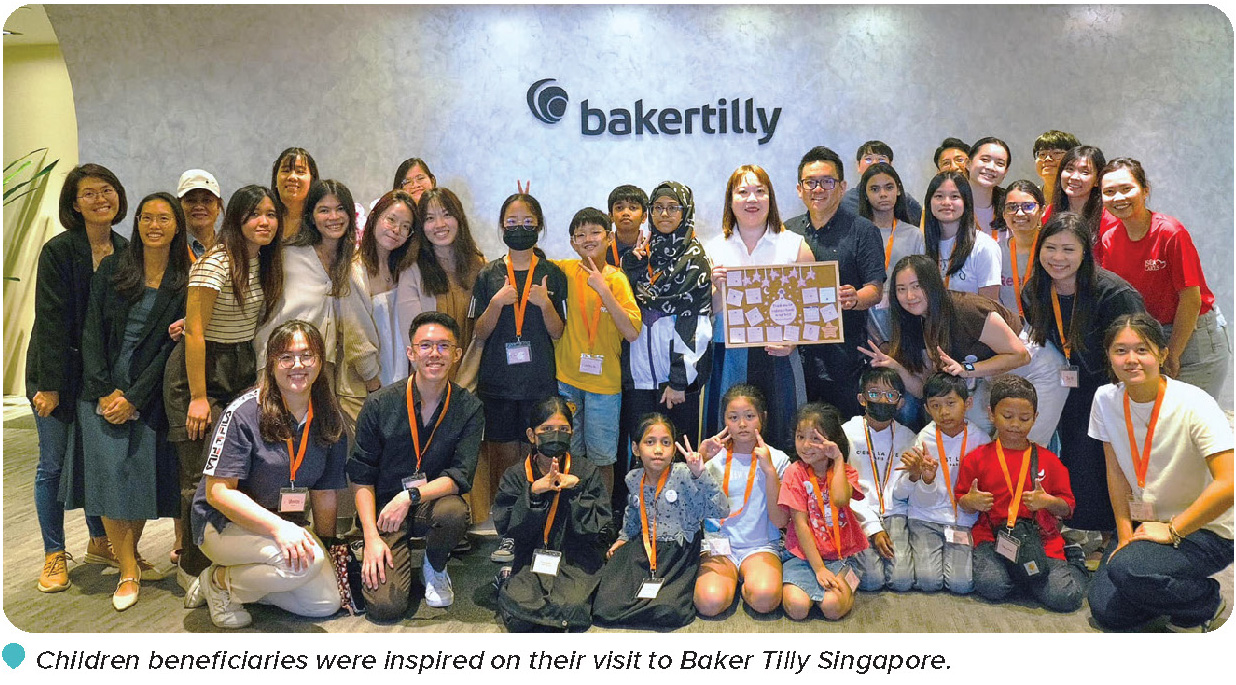
ISCA Cares Charity Golf
The ISCA Cares Charity Golf event on 31 March 2023 garnered strong support from dedicated golfers and corporates with a passion to give. We raised a sum of close to $280,000. Contributions went towards the ISCA Cares Bursary, which supports aspiring accountants from financially-challenged families in completing their education.
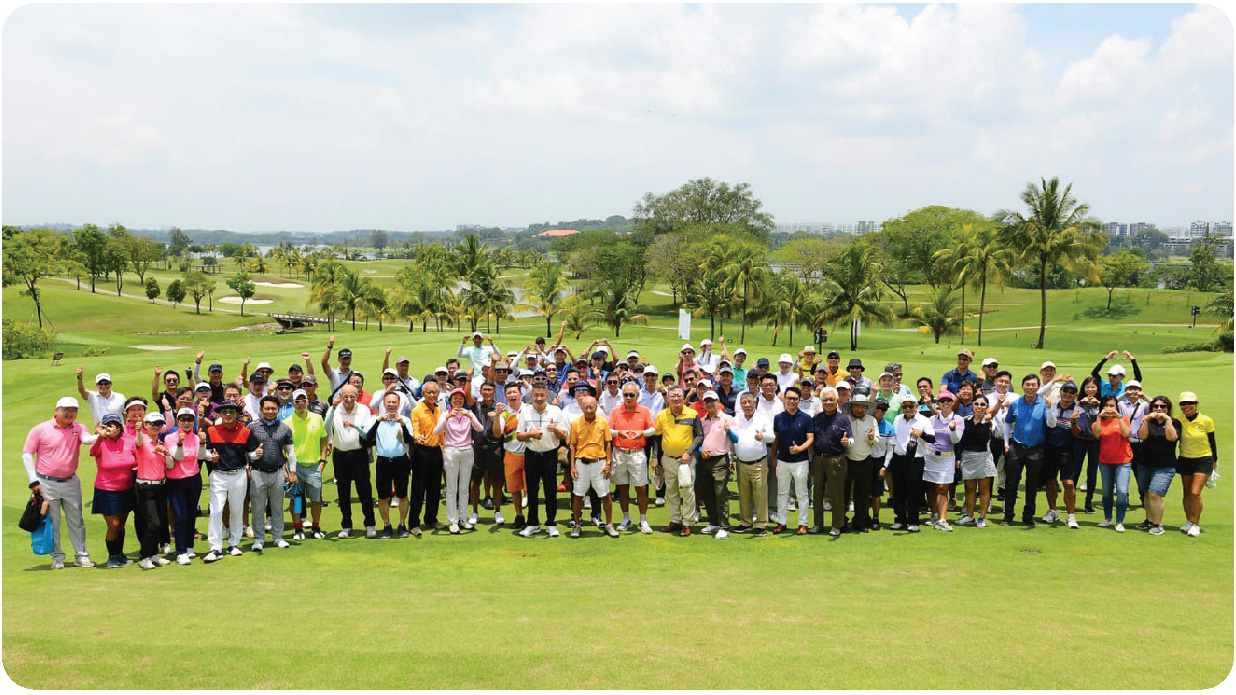
ISCA Run
A key annual sporting event is ISCA Run, promoting camaraderie and a healthy lifestyle for the accountancy profession and the community.Over 1,700 participants from professional firms, the commerce sector and the general public took part in the 5km and 10km run, held at OCBC Square on 30 September 2023.

ISCA staff also volunteered at the event to reduce operating costs. All proceeds raised from this charity event were donated to ISCA Cares to benefit meaningful causes.
ISCA60 Tree Planting
In commemoration of ISCA’s 60th anniversary and Singapore’s 60 years of greening efforts, ISCA staff and Council participated in the ISCA60 Tree Planting event on 9 October 2023, supporting the OneMillionTrees movement. Collaborating with NParks at Ang Mo Kio Town Garden West, we added 60 trees and contributed to Singapore’s greener future.
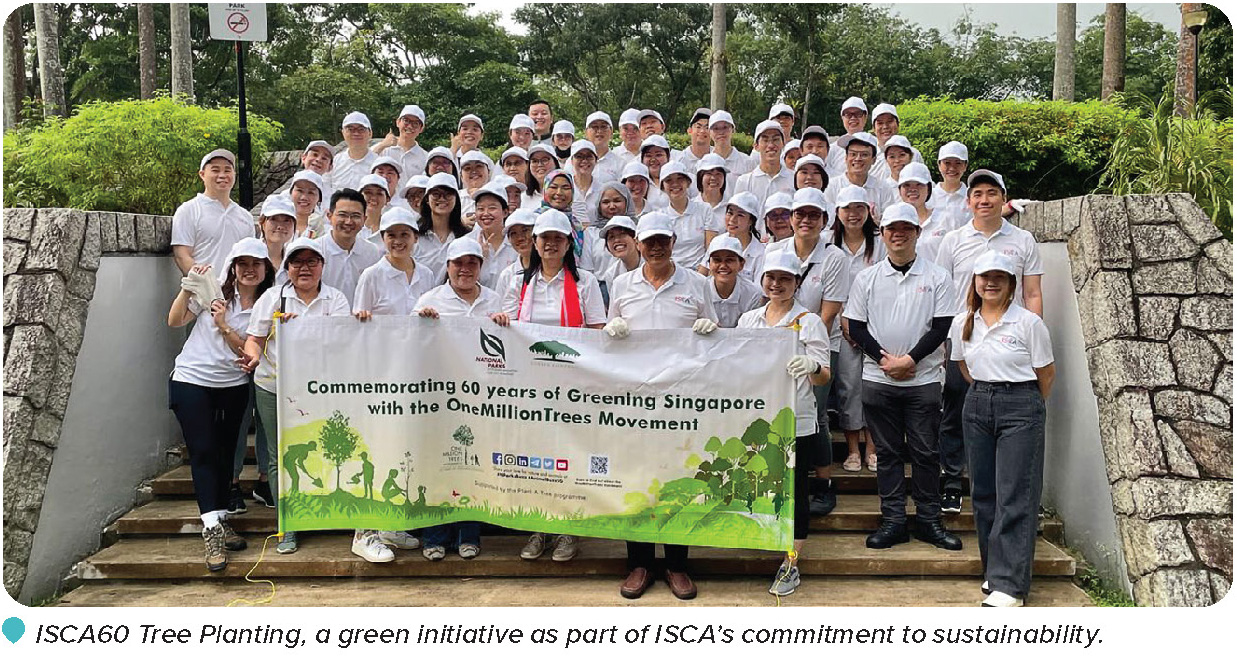
Council and Committee members
The Institute recognises the importance of fostering an effective and diverse Council alongside well-balanced Committees, to represent and support our diverse membership.
- The ISCA Council is the governing body of the Institute and is responsible for the management and control of the affairs and the funds of the Institute in accordance with the Constitution. The Council approves major policy decisions and oversees matters relating to the governance and membership of the Institute.
- The Council delegates certain powers to ISCA Committees and appoints the chairman and members of these Committees to perform various functions to assist Council in the discharge of its responsibilities based on the Committees’ terms of reference. The terms of reference of each Committee set out the purpose and responsibilities as well as the composition of the Committee. All these committees are accountable to the Council.
- The Council represents the interests of the members and is accountable to them. Reflecting our diverse membership base, the Council comprises leaders from the corporate sector, the public accounting profession, the public sector and academia.
- The Nomination Committee (NC) reviews and recommends to the Council the desired competencies required within the Council’s membership pertaining to gender, age, skill sets, experience and membership mix of the Institute. The NC assists the Council in identifying suitable candidates for appointment to the various ISCA Committees.
- An effective Council is one with a blend of skills and experience where each member brings qualities that complement the whole. As far as possible, a balance of gender, age and experience should be pursued. The Council should apply equal emphasis on bringing together the right mix of professional experience, technical skills, and knowledge relevant to the work of the Council and ISCA Committees to enhance the decision-making process.

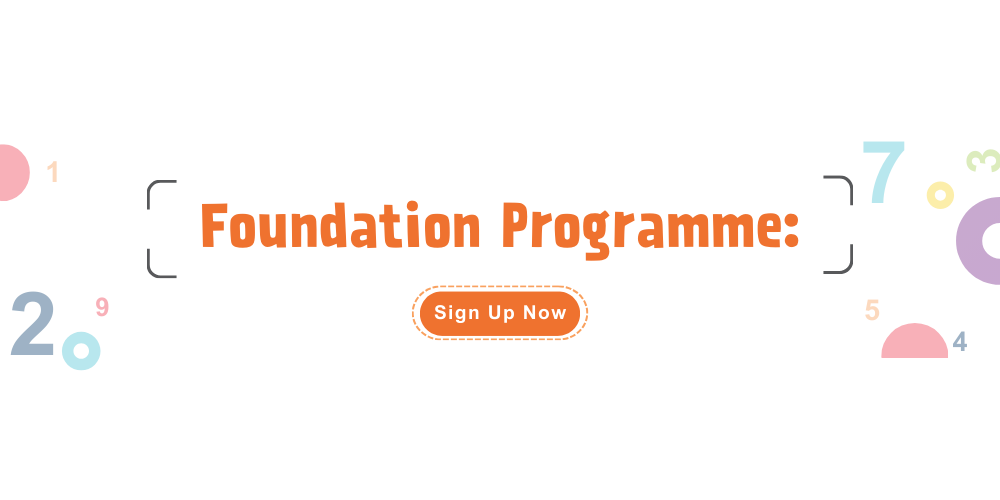

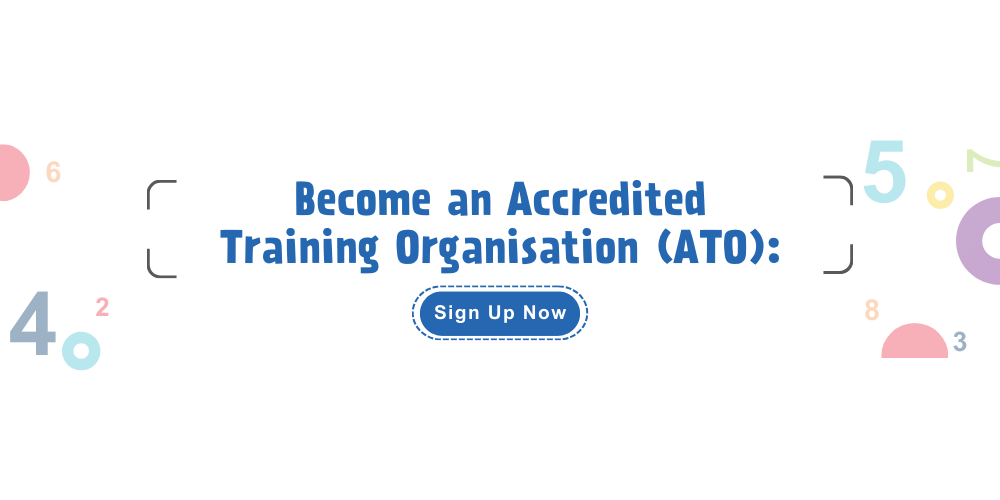

.png?sfvrsn=dd675fd5_2)

.png?sfvrsn=7844d69f_0)
6a6c7fe2013f4be3b0ecc0a5930da5c9.jpg?sfvrsn=ab5334c8_0)

/business-management-global-connection/istock-1167579720-c.jpg?sfvrsn=ff93f9a5_2)
/audit-assurance/istock-1169206203-c.jpg?sfvrsn=1d6f9b25_6)

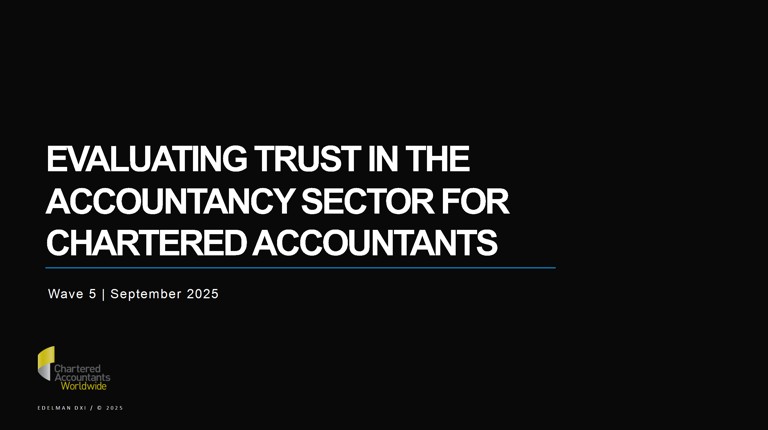
/ethics-and-professionalism/istock-1141115724-c.jpg?sfvrsn=4e54d691_2)

/audit-assurance/istock-818732836-c-v3.jpg?sfvrsn=ae44e7b7_0)
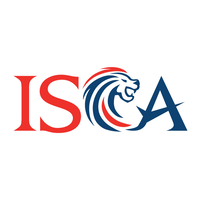
.png?sfvrsn=905ee1bd_0)
/legal-secretarial/istock-866706340-c.jpg?sfvrsn=d7f57b8c_2)